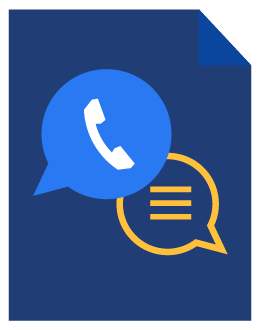Business Development Representatives (BDRs) play a vital role in bridging the gap between marketing and sales, and at the core of their success is effective BDR networking. With the right strategies, BDRs can cultivate meaningful relationships that contribute to both business outcomes and career growth.
Whether you are new to the role or a seasoned professional looking to sharpen your skills, honing your networking abilities can significantly enhance your outreach strategy. These tips are designed to help you build purposeful connections and lay the groundwork for long-term success.

Download our list of 28 Discovery Call Questions
Get the most out of your discovery call questions with our tips, best practices, and practical examples you can use in your own sales development outreach.
What is a business development representative?
A Business Development Representative (BDR) is a sales professional responsible for identifying, engaging, and qualifying potential customers, often through targeted outbound prospecting. While marketing efforts generate awareness and interest, their impact is limited without consistent and strategic follow-up. BDRs play a vital role in bridging that gap by taking ownership of inbound leads, initiating meaningful conversations, and guiding prospects toward a seamless transition to the sales team.
To maintain a strong and consistent sales pipeline, BDRs concentrate on lead qualification and relationship-building. This involves more than just making contact; it requires a proactive, persistent presence across multiple channels. Through thoughtful engagement and personalized outreach, BDRs help turn interest into opportunity.

Subscribe to EBQ's Bimonthly Newsletter

Subscribe to EBQ's Bimonthly Newsletter
How to be successful in business development
At EBQ, we follow an account-based marketing strategy that emphasizes building meaningful relationships with key accounts, rather than focusing solely on individual contacts. In fact, 85% of BDRs say they prioritize making multiple relationships with each prospective account, underscoring the importance of interpersonal skills in business development.
From establishing trust-based relationships to consistently delivering value, a BDR’s success depends on people. It is not just about outreach, but about earning trust across an entire organization. While strategic thinking is crucial, no amount of planning will convert leads without essential soft skills like active listening, adaptability, and consistency.
These five communication tips can help BDRs strengthen their networking efforts and drive results.
1. Connection over agenda

With outbound outreach methods like cold calling or cold emailing, it is easy to fall into the trap of treating the process as a numbers game. However, successful BDRs know an authentic connection is more impactful than sheer volume. Approaching outreach with a mindset focused on building rapport — rather than simply hitting quotas — leads to more meaningful conversations, stronger relationships, and ultimately, better-qualified leads.
2. Ask open-ended questions
Asking open-ended questions is one of the most effective strategies BDRs can use. Unlike yes-or-no questions, open-ended prompts encourage conversation and give the prospect space to share information regarding their pain points and needs.
This approach not only helps BDRs gather valuable context, but also builds rapport by signaling genuine interest rather than a scripted sales pitch. By steering the conversation naturally, BDRs can position themselves as helpful resources rather than intrusions, increasing their chances of being connected to the right person.

3. Leverage digital networking

Digital channels are powerful tools for nurturing prospects beyond the initial call. Platforms like LinkedIn offer BDRs a professional space to engage with leads, share relevant content, and reinforce their value in a way that aligns with each prospect’s unique needs.
When used thoughtfully, these channels allow BDRs to maintain consistent communication, strengthen relationships, and gradually move prospects closer to a buying decision. This ongoing engagement not only builds trust but also creates a strong foundation for a successful sales conversation.
4. Listen effectively
Active listening is one of the most valuable tools a BDR can use to build meaningful connections. By truly paying attention to a prospect’s needs, challenges, and goals, you can tailor your messaging and offer solutions that resonate. Effective listening shows that you value the person and their needs, not just the potential deal. It also helps you pick up on subtle cues that can guide your follow-up strategy and deepen the relationship over time.

5. Nurture relationships

Building business relationships requires ongoing effort and attention. Even if a lead is not ready to move forward, staying in touch through thoughtful, occasional follow-ups helps keep the connection warm. Check in periodically with relevant updates, useful resources, or personalized messages that show you are paying attention. By consistently providing value and demonstrating reliability over time, even a casual interaction can grow into a long-term business opportunity.

Download our list of 28 Discovery Call Questions
Get the most out of your discovery call questions with our tips, best practices, and practical examples you can use in your own sales development outreach.
EBQ: The business development experts
At EBQ, we recognize that effective networking goes beyond making introductions. It is about building trust and creating long-term value. Our BDRs seamlessly integrate with your team to represent your brand authentically and foster meaningful connections that support sustainable growth.
Mastering the art of networking requires a thoughtful strategy, consistent effort, and the right support. EBQ’s Business Development services are trained to enhance their outreach, nurture leads, and strengthen the interpersonal skills that distinguish high performers.
About the Author:
Heather is the VP of Business Development at EBQ and excels in crafting scalable yet personalized sales strategies. With over a decade of experience, she’s transformed transactional sales into impactful relationships, crediting her success to EBQ’s meritocracy and her passion for mentoring future leaders.


